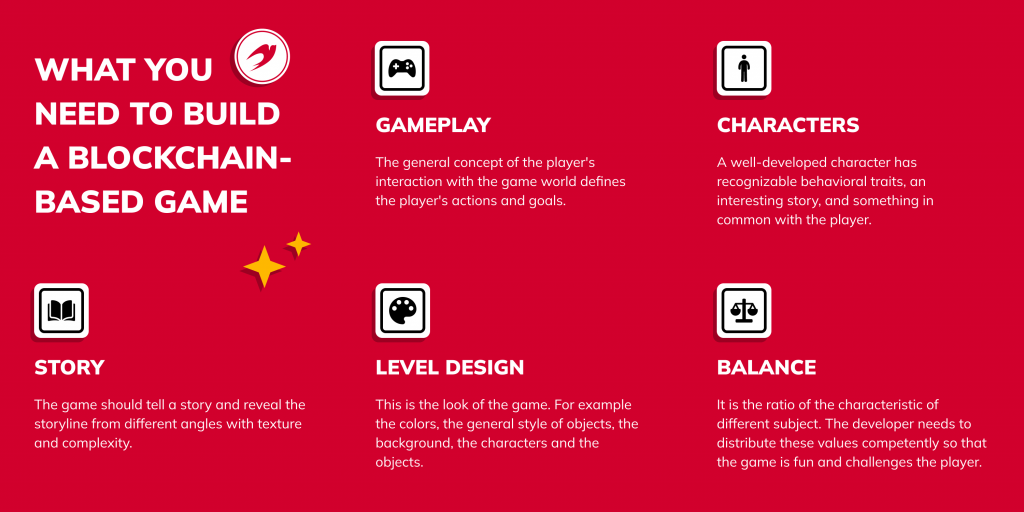Canal Mail Corp: Your Hub for Daily Insights
Explore the latest news, tips, and trends across various topics.
Level Up Your Play: How Blockchain is Redefining Gaming Forever
Discover how blockchain is transforming gaming, unlocking new worlds and opportunities. Level up your play and join the revolution today!
Understanding NFTs: Revolutionizing Ownership in the Gaming World
Understanding NFTs has become essential in today's digital landscape, particularly within the gaming world. Non-fungible tokens, or NFTs, are unique digital assets verified using blockchain technology, which ensures their scarcity and ownership. This innovation is revolutionizing how players interact with their in-game purchases and virtual assets. Unlike traditional digital items, NFTs allow gamers to truly own their items, creating opportunities for buying, selling, and trading that transcend the boundaries of individual games.
The integration of NFTs in gaming introduces a new economic model where players can earn real value from their in-game experiences. For instance, items that players acquire or create can be transformed into NFTs, enabling them to trade these assets in various marketplaces. This shift not only enhances player engagement but also fosters a sense of community as users collaborate and compete within this new ecosystem. As we move forward, understanding the implications of NFTs in gaming will be crucial for both developers and players alike.

Counter-Strike is a popular team-based first-person shooter game that involves two teams, terrorists and counter-terrorists, competing to complete objectives. Players can choose from various weapons and tactics to outsmart their opponents. For those looking to enhance their gaming experience, using a rollbit promo code can provide great rewards and bonuses.
The Future of Gaming: How Blockchain Technology Enhances User Experience
The future of gaming is being dramatically reshaped by blockchain technology, which introduces a level of decentralization and transparency that was previously unattainable. Games can now offer true ownership of in-game assets, allowing players to buy, sell, and trade items across various platforms. This creates a vibrant economy within gaming environments where players can earn real value from their time spent in-game. Furthermore, blockchain enhances user experience by ensuring that game data is secure and immutably recorded, preventing fraud and cheating that can mar competitive play.
As the adoption of blockchain technology continues to grow, we can expect to see major advancements in areas such as cross-platform gaming and interoperability. For instance, players could potentially use the same digital assets across different games, leading to a more unified experience. Additionally, decentralized autonomous organizations (DAOs) will allow communities to have a say in game development, making it a more participatory experience. Overall, the integration of blockchain is set to revolutionize the gaming landscape, creating a more engaging and rewarding environment for gamers everywhere.
Is Play-to-Earn the Next Big Thing in Gaming? Here's What You Need to Know
The evolution of gaming has taken a remarkable turn with the rise of Play-to-Earn models, which allow players to earn real-world rewards through their in-game activities. Unlike traditional gaming frameworks, where players invest time and money without receiving tangible benefits, Play-to-Earn introduces a revolutionary concept that aligns the interests of both players and developers. As blockchain technology continues to mature, more titles are adopting this model, creating a compelling ecosystem where users can monetize their gaming skills and time.
While the Play-to-Earn trend appears to be gaining traction, it's essential to consider both its benefits and potential pitfalls. On one hand, players can earn cryptocurrency or valuable in-game assets, but on the other hand, the risk of financial loss can be daunting. As with any investment, due diligence is crucial; players should research the games they engage with, understanding the economic models and community behind them. Ultimately, whether Play-to-Earn becomes the next big thing in gaming depends on its ability to balance sustainability with profitability, making it a significant point of discussion for both gamers and developers alike.